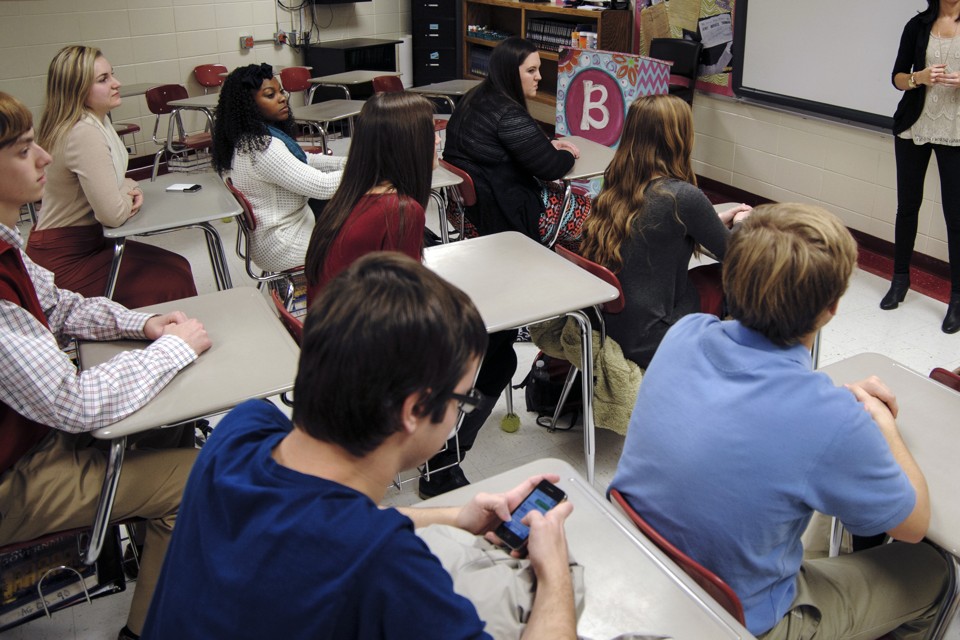
Are students tuning out their peers and teachers when focused on their phones?
Can and should smartphones be used to enhance learning for all students? Or should we avoid using phones in class because of the distractibility factor, and because many kids seem resistant to using them for learning?
- Richard Freed, a clinical psychologist and the author of Wired Child: Reclaiming Childhood in a Digital Age, who works with a wide range of children and families in the San Francisco Bay area.“High levels of smartphone use by teens often have a detrimental effect on achievement, because teen phone use is dominated by entertainment, not learning, applications,” he said
- Struggling students (from all backgrounds) seem to be more susceptible than their higher-achieving peers to using their smartphones for noneducational purposes while in school.
- Also, the device does make a difference: When I design and schedule instruction allowing for one-to-one computer access, students get better results than when I try the same thing with one-to-one phone access.
Distraction:
- “I see students using cellphones and earbuds as a way to disengage with their peers,” he said. “The isolation squanders opportunities for students to learn to engage and communicate with empathy.” The cellphones and easy access to social media, according to Meyer, are also at the root of much of the student disruption and conflict that happens on campus. Fern Creek’s principal, Nathan Meyer
- The findings of a recent study on student phone access and the achievement gap by Louis-Philippe Beland and Richard Murphy for the London School of Economics and Political Science echoed my concerns. “We find that mobile phone bans have very different effects on different types of students,” the authors wrote. “Banning mobile phones improves outcomes for the low-achieving students … the most, and has no significant impact on high achievers.”
- Researchers at Kent State University, for example, found that among college students, more daily cellphone use (including smartphones) correlated with lower overall GPAs. The research team surveyed more than 500 students, controlling for demographics and high-school GPA, among other factors. If college students are affected by excessive phone use, then surely younger students with too much access to their phones and too little self-control and guidance would be just as affected academically if not more.
“It’s like giving kids equal access to cigarettes and candy ... teens are not as adept at understanding risk and cause and effect.”
- Some school districts with large percentages of struggling students have forged ahead to increase student access to their phones. Last year, New York City’s public-school system lifted its ban.“It’s like giving kids equal access to cigarettes and candy,” Freed said. “There is a reason that adults have tried to limit and regulate young people’s behavior, given that teens are not as adept at understanding risk and cause and effect.”

No comments:
Post a Comment
Note: Only a member of this blog may post a comment.